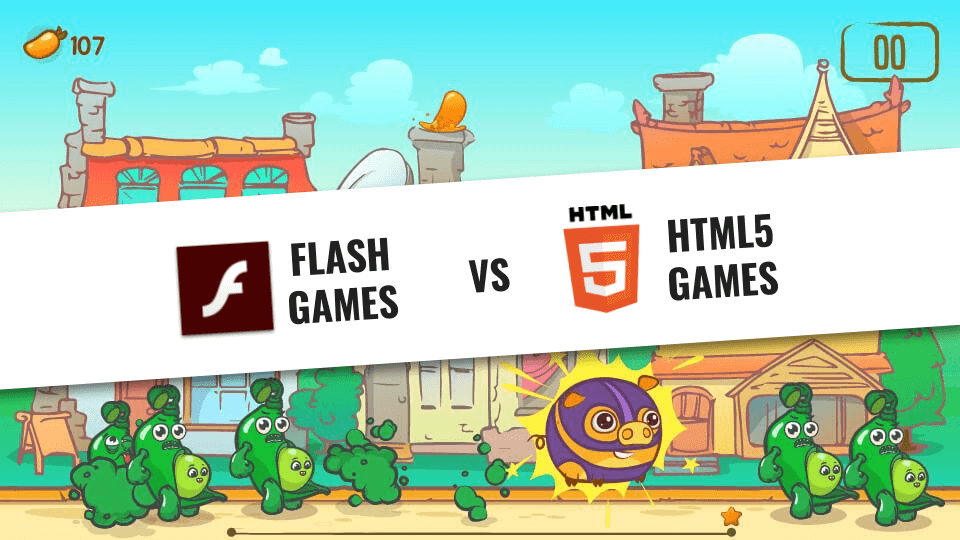What Are HTML5 vs Flash Browser Games? Understanding the Revolutionary Shift
The gaming industry witnessed a massive transformation when HTML5 technology replaced Adobe Flash as the dominant platform for browser games. HTML5 games are web-based interactive entertainment experiences that run natively in modern browsers without requiring plugins.
HTML5 games leverage modern web standards, including HTML5 markup, CSS3, and JavaScript, to deliver rich multimedia experiences directly through web browsers. This revolutionary approach eliminated the security vulnerabilities and compatibility issues that plagued Flash-based gaming for over two decades.
Key Differences at a Glance
HTML5 games offer cross-platform compatibility, meaning they work seamlessly across desktop computers, smartphones, tablets, and various operating systems without any additional software installation. Flash games, conversely, required users to install and regularly update the Adobe Flash Player plugin, creating friction and security risks.
Why HTML5 Completely Dominates Flash Technology
Superior Security Architecture
HTML5 games operate within the browser’s secure sandbox environment, significantly reducing malware risks and security vulnerabilities. Flash technology suffered from frequent security exploits that made systems vulnerable to hackers and malicious attacks. Modern browsers implement robust security measures for HTML5 content, including automatic updates and enhanced encryption protocols.
Universal Mobile Compatibility
The mobile gaming revolution demanded technology that worked flawlessly across all devices. HTML5 delivers native touchscreen support and responsive design capabilities that automatically adapt to different screen sizes. Apple’s decision to block Flash support on iOS devices in 2010 essentially marked the beginning of Flash’s decline, as mobile gaming became increasingly dominant.
Performance Optimization Benefits
HTML5 games demonstrate superior loading speeds and reduced system resource consumption compared to Flash alternatives. Modern HTML5 games utilize WebGL for hardware-accelerated graphics rendering, enabling smooth 60fps gameplay even on older devices. Flash games frequently suffered from performance issues, high CPU usage, and memory leaks that degraded user experience.
How HTML5 Browser Games Work: Technical Deep Dive
Core Technology Stack
HTML5 browser games function through a sophisticated combination of web technologies working in harmony:
- HTML5 Canvas API provides the drawing surface for 2D graphics and animations
- WebGL technology enables hardware-accelerated 3D graphics rendering
- JavaScript engines handle game logic, user interactions, and real-time calculations
- CSS3 styling manages visual presentation and responsive design elements
- WebAudio API delivers high-quality sound effects and background music
Cross-Browser Compatibility
Modern HTML5 games achieve universal compatibility across all major web browsers, including Chrome, Firefox, Safari, Edge, and mobile browsers. This standardization eliminates the fragmentation issues that plagued Flash gaming, where different browser versions often produced inconsistent results.
Progressive Web App Integration
Advanced HTML5 games can leverage Progressive Web App (PWA) technology to offer offline gameplay capabilities, push notifications, and app-like experiences while remaining browser-based. This hybrid approach combines the accessibility of web games with the functionality of native mobile applications.
HTML5 vs Flash Games: Comprehensive Comparison
| Feature | HTML5 Games | Flash Games |
|---|---|---|
| Plugin Requirement | No plugins needed | Adobe Flash Player required |
| Mobile Compatibility | Full mobile support | Limited/no mobile support |
| Security Level | High (browser sandbox) | Low (frequent vulnerabilities) |
| Loading Speed | Fast (optimized code) | Slow (resource-heavy) |
| Cross-Platform Support | Universal compatibility | Desktop-focused only |
| Development Cost | Lower (web standards) | Higher (proprietary tools) |
| Update Process | Automatic server-side | Manual plugin updates |
| Graphics Quality | WebGL-enhanced visuals | Limited rendering capabilities |
| SEO Friendliness | Search engine friendly | Poor SEO optimization |
| Future Support | Active development | Discontinued (2020) |
Revolutionary Advantages of HTML5 Gaming Technology
Instant Accessibility
Players can access HTML5 games immediately through any web browser without downloads, installations, or account registrations. This zero-friction approach dramatically increases player engagement and reduces bounce rates compared to traditional gaming platforms.
Developer-Friendly Ecosystem
HTML5 game development utilizes familiar web technologies that millions of developers already understand. This accessibility has democratized game creation, enabling independent developers and small studios to compete with larger gaming companies.
Advanced Monetization Options
HTML5 games support diverse revenue models, including:
- In-game advertising with seamless integration
- Microtransaction systems for premium content
- Subscription-based access to game libraries
- Affiliate marketing partnerships with gaming platforms
- Sponsored content opportunities for brands
Enhanced Analytics Capabilities
HTML5 games provide comprehensive player behavior tracking through web analytics tools, enabling developers to optimize gameplay mechanics, identify popular features, and improve user retention rates.
Future Trends Shaping HTML5 Browser Games in 2026
Artificial Intelligence Integration
Modern HTML5 games increasingly incorporate AI-powered features, including dynamic difficulty adjustment, procedural content generation, and intelligent non-player character behaviors. Machine learning algorithms analyze player preferences to deliver personalized gaming experiences in real-time.
WebAssembly Performance Boost
WebAssembly (WASM) technology enables HTML5 games to achieve near-native performance levels by running compiled code directly in browsers. This advancement allows complex games with sophisticated graphics and physics engines to run smoothly in web environments.
Cloud Gaming Evolution
HTML5 serves as the foundation for cloud gaming platforms that stream high-quality games directly to browsers without requiring powerful local hardware. This trend democratizes access to premium gaming experiences across all device types.
Augmented Reality Integration
Advanced HTML5 games are beginning to incorporate WebXR technology for augmented and virtual reality experiences accessible through standard web browsers. This convergence opens new possibilities for immersive browser-based entertainment.
Frequently Asked Questions
Can HTML5 games match the performance of native mobile games?
Modern HTML5 games utilizing WebGL and WebAssembly technologies can deliver performance comparable to native applications for most game genres. While computationally intensive 3D games may still benefit from native development, HTML5 games excel in casual, puzzle, and strategy gaming categories.
Are HTML5 games better for SEO than Flash games?
Yes, HTML5 games offer significant SEO advantages because search engines can crawl and index HTML5 content, while Flash content remained largely invisible to search algorithms. This visibility improves discoverability and organic traffic generation.
What happened to existing Flash games after 2020?
Many popular Flash games have been converted to HTML5 format to preserve gameplay experiences. Archive projects like Flashpoint have preserved thousands of classic Flash games, while developers have migrated active titles to modern web technologies.
Do HTML5 games require internet connectivity to play?
HTML5 games can be designed for both online and offline gameplay using browser caching and Progressive Web App technologies. Offline capabilities depend on the specific game’s architecture and developer implementation choices.
How do HTML5 games handle multiplayer functionality?
HTML5 games utilize WebSocket technology and WebRTC protocols to enable real-time multiplayer experiences directly through browsers. These technologies support features like chat systems, leaderboards, and synchronized gameplay without additional software installation.







